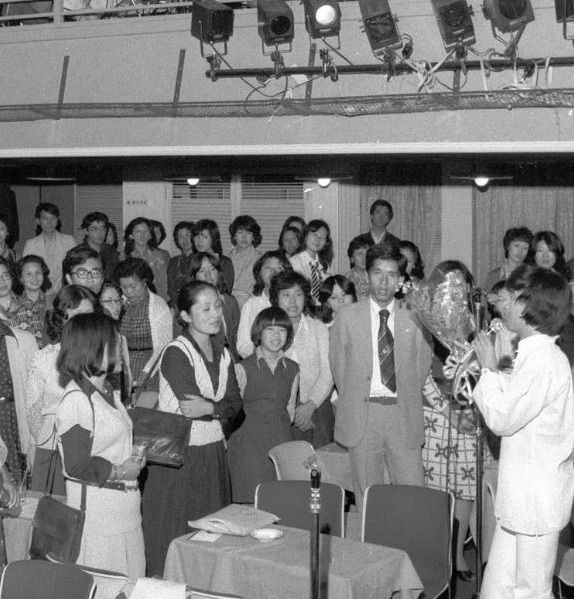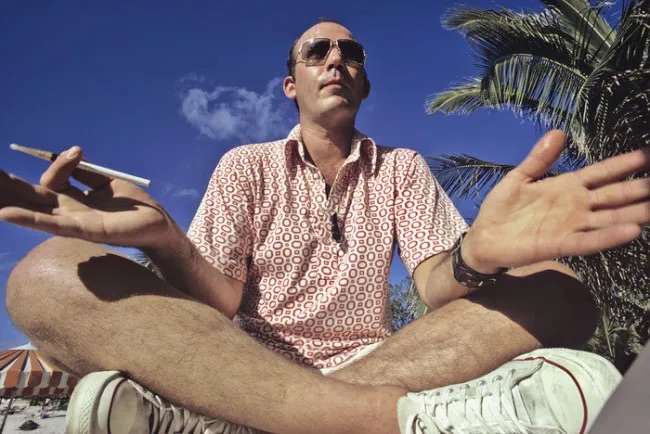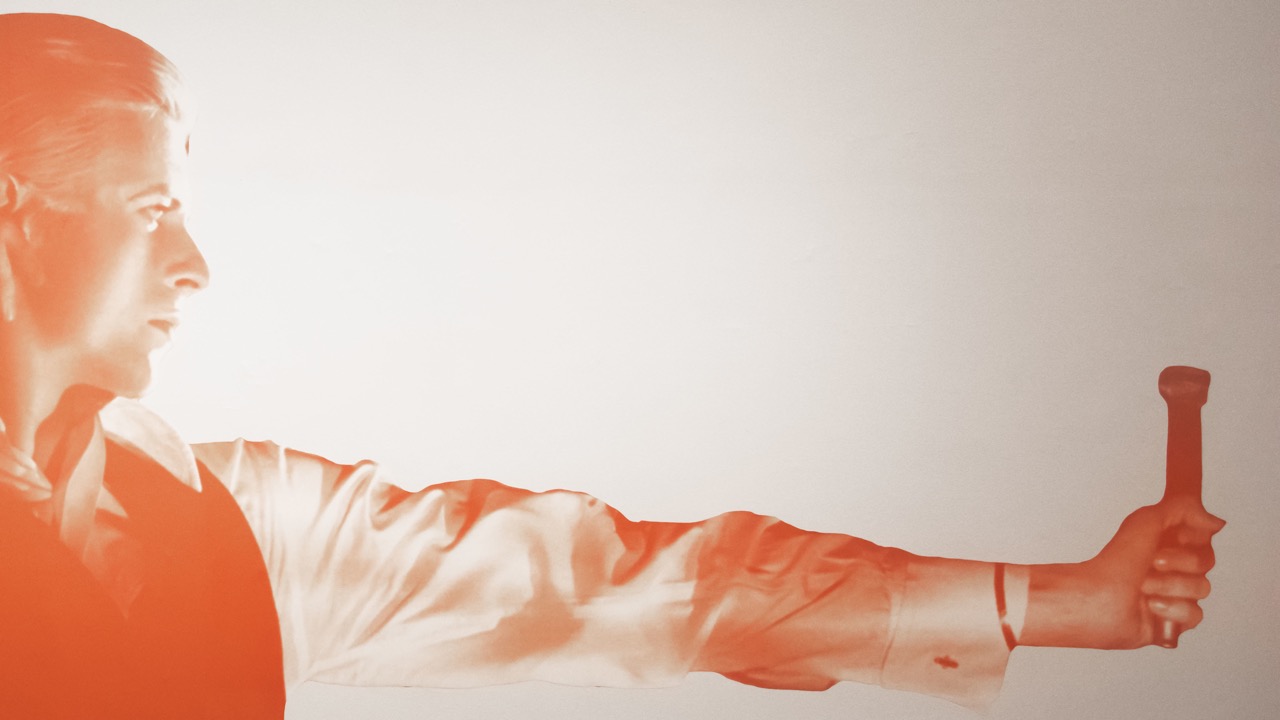The History Of Karaoke: Where It All Began
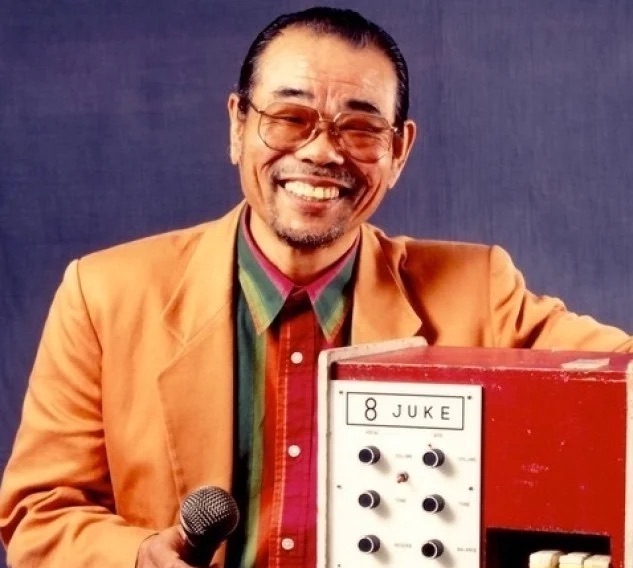
What Is The Origin Of Karaoke?
The history of karaoke started in the late 1960s in Japan. There were a couple of small machines at the time that were being toyed with. The first commercially distributed machine though came out of Kobe, Japan. It was invented by a man named Daisuke Inoue. The story is actually a little bit serendipitous. And thanks to Topic Magazine in 2005 &, we have a first person account of how the modern sensation was created.The First Commercial Machine And The Story Behind It
"One day, the president of a small company came to the club where I was playing to ask a favor. He was meeting business
clients in another town and knew they would all end up at a drinking establishment and that he would be called on to sing.
“Daisuke, your keyboard playing is the only music that I can sing to! You know how my voice is and what it needs to sound good.”
"So at his request I taped a number of his favorite songs onto an open-reel tape recorder in the keys that would best suit his voice. A few days later he came back full of smiles and asked if I could record some more songs. At that moment the idea for the Juke 8 dawned on me: You would put money into a machine with a microphone, speaker and amplifier, and it would play the music people wanted to sing."
"As I had attended a Denko (or Electric Industry) High School, you’d think I could have built the machine myself. But I was always scared of electricity and so graduated without much of an ability to put things together. A member of my band introduced me to a friend of his who had an electronics shop. I took my idea to him, and he understood exactly what I’d envisioned. With my instruction, he built eleven Juke 8s. Each machine consisted of an amplifier, a microphone, a coin box and an eight-track car stereo. Putting the machines together took about two months and cost around $425 per unit."
"So at his request I taped a number of his favorite songs onto an open-reel tape recorder in the keys that would best suit his voice. A few days later he came back full of smiles and asked if I could record some more songs. At that moment the idea for the Juke 8 dawned on me: You would put money into a machine with a microphone, speaker and amplifier, and it would play the music people wanted to sing."
"As I had attended a Denko (or Electric Industry) High School, you’d think I could have built the machine myself. But I was always scared of electricity and so graduated without much of an ability to put things together. A member of my band introduced me to a friend of his who had an electronics shop. I took my idea to him, and he understood exactly what I’d envisioned. With my instruction, he built eleven Juke 8s. Each machine consisted of an amplifier, a microphone, a coin box and an eight-track car stereo. Putting the machines together took about two months and cost around $425 per unit."
This was only the beginning. Because a formal patent was never taken out on the machine, they quickly started to spread across Japan. Inoue himself started to produce more of them as well.
"Two club owners from Kobe decided they wanted to open clubs in Osaka. They took the Juke 8 with them.
Within a year, my company was sending machines all over Japan. We made 25,000 units," Inoue continued.
"After the first eleven, the rest were all pure white and looked like video arcade games. Osaka became
the birthplace of the karaoke boom. It went straight to Tokyo, and soon the whole country, continent
and the world became caught up in the karaoke craze."
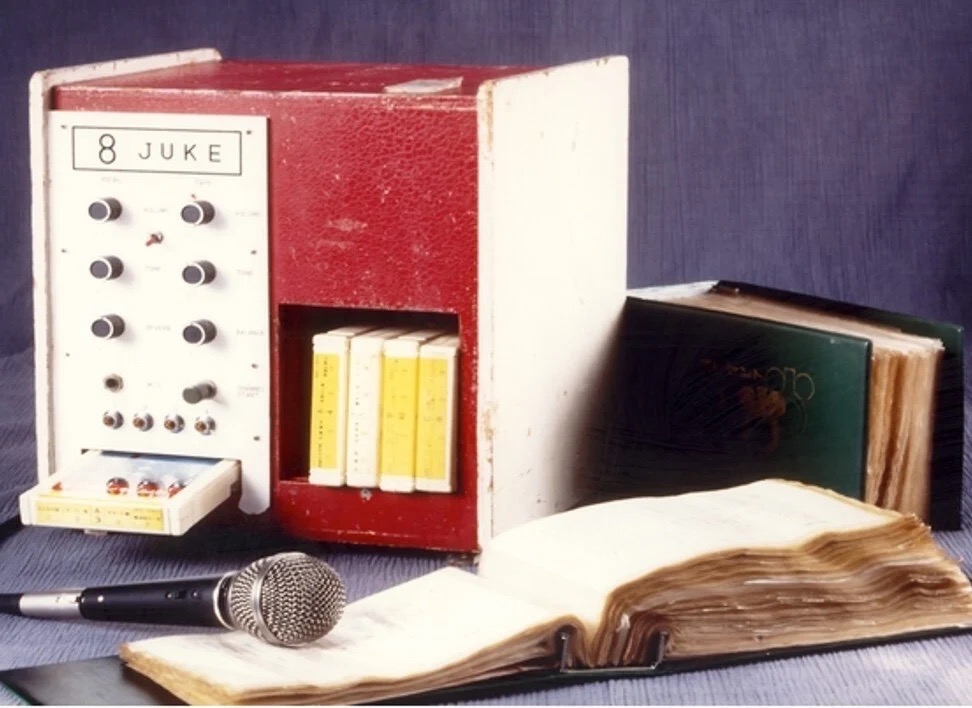
From Kobe, Japan To A Global Phenomenom
It didn't take long before the craze started to catch on globally. By the late 1970s karaoke was spreading to other parts of Asia like South Korea and the Philippines, and then ultimately to the rest of the world.Some of the key factors attributing to it are tourism and cultural exchange, international business and trade, media exposure, and immigrant communities. Music is a universal language so it was to no surprise that karaoke couldn't be contained.
Karaoke Coming To The USA
We first saw karaoke come to the United States around the late 1970s primarily through the influence of Japanese ex-pats and the growing popularity of their culture. There was a major influx of Japanese immigrants at the time. Post WWII, the relationship between Japan and the United States had significantly improved. This led to increased cultural and economic exchanges. Instead of only labor-workers like in the past, we were now seeing highly educated professionals, students, and researchers making the move. This only strengthened the Japanese population in the US. The communities that started to pop up would then provide support for future immigrants creating a snowball effect.The First Karaoke Bar In America
In 1982, Sal Ferraro opened "Dimples" in Burbank, California. It was the first karaoke bar to open in America. He was trying to find a way to distinguish the place from the disco sportsbar he owned down the street. At a Hollywood party, he came across The Singing Machine and saw an amazing opportunity to showcase something new. It was the birth of Dimples.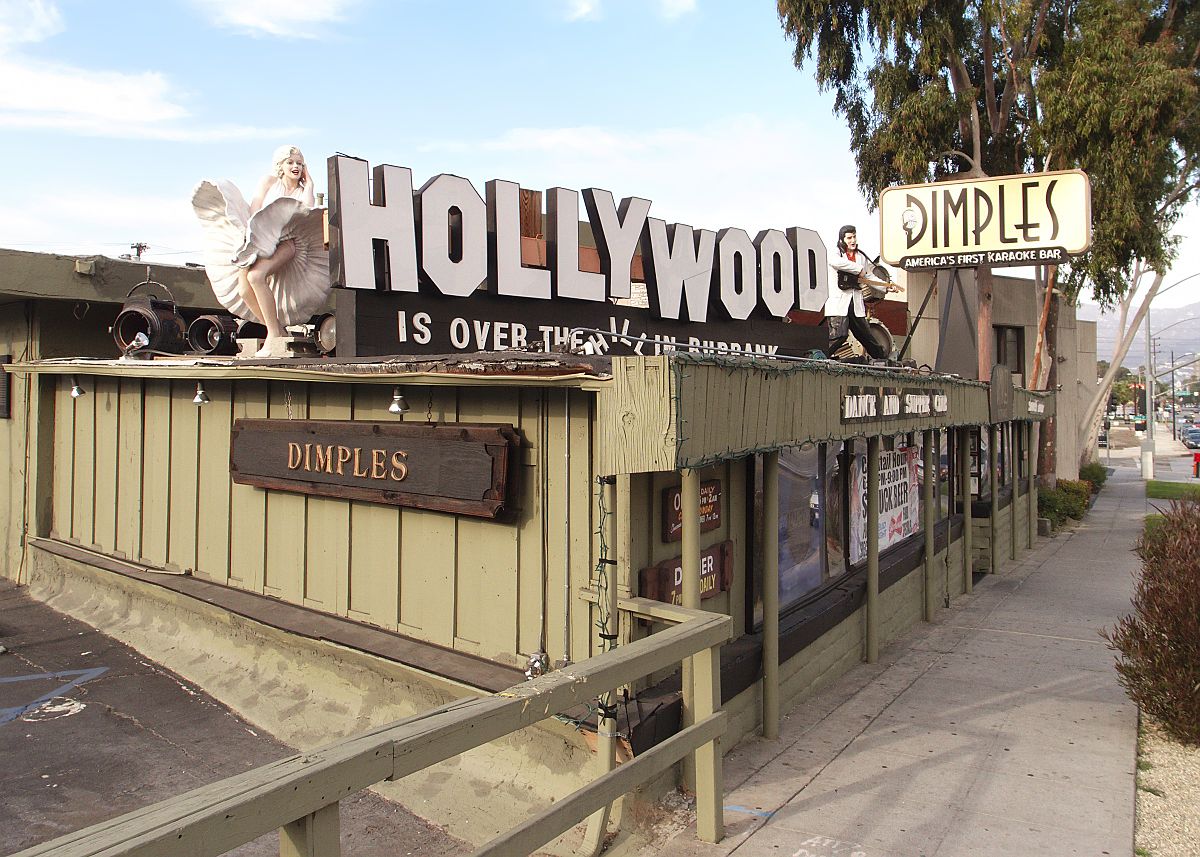 At the time
you still had to read the lyrics from a book. But later that same year, LaserDisc
technology made it's way on to the scene. The new CD technology would then allow lyrics to be displayed on a screen, which in turn helped
fuel the karaoke fire that was already burning bright. By the late 80s we started to see portable, at-home devices being
distributed which aided the growth rate and gave expansion outside of the commercial setting.
At the time
you still had to read the lyrics from a book. But later that same year, LaserDisc
technology made it's way on to the scene. The new CD technology would then allow lyrics to be displayed on a screen, which in turn helped
fuel the karaoke fire that was already burning bright. By the late 80s we started to see portable, at-home devices being
distributed which aided the growth rate and gave expansion outside of the commercial setting. Portable Home Karaoke Devices
By the mid 1980s we saw the first version of a portable home device being distributed, which only added gasoline to the already burning karaoke craze. With the introduction of the internet in the 90s, we saw karaoke platforms being created online, allowing libraries and song collections to expand exponentially.Early 2000s came around and karaoke had made it's debut in the gaming industry with games such as Karaoke Revolution and RockBand. Personal computers and smart devices have officially entered the chat and karaoke is virtually everywhere. We now have apps on our phones for being able to sing virtually anywhere. Versions of songs have been uploaded for free onto Youtube giving you home access. Yes you might not have a microphone and a stage but you can still participate with nothing more than an internet connection and a screen.
Karaoke Market Soars
From a little story about a business man who wanted to be able to sing his favorite songs we have seen a global phenomenom unfold. The karaoke market was estimated to be worth over 5 billion dollars in 2022 with expectations set to be over 7 billion by the early 2030s.Today karaoke is about as common as a sidewalk. You can find it across the world. It doesn't matter what language you speak. Echoes of Journey's "Don't Stop Believing" or Billy Joel's "Pianoman" ringing out the bar room door, filling the moonlit night.
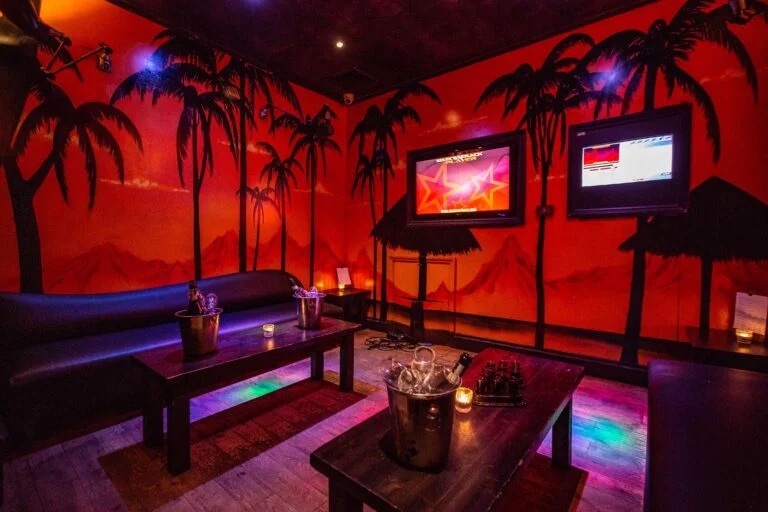
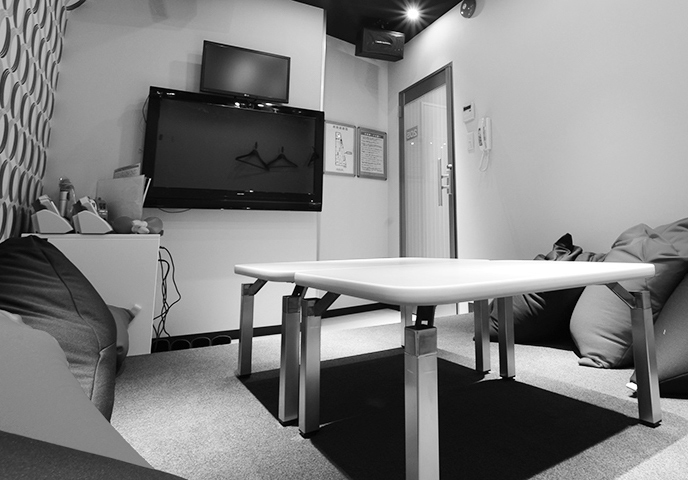
Facts About Karaoke
- Origins of the Word: The word "karaoke" comes from the Japanese words "kara" (meaning "empty") and
"okesutora" (meaning "orchestra"). So, karaoke essentially translates to "empty orchestra," referring to the
instrumental tracks without vocals that users sing along to.
- Karaoke Capital of the World: The city of Manila in the Philippines is often referred to as the "Karaoke Capital of the World." Karaoke is a ubiquitous form of entertainment in the Philippines, enjoyed by people of all ages and social backgrounds.
- Guinness World Record for Longest Karaoke Marathon: The Guinness World Record for the longest karaoke marathon by a single individual is held by Leonardo Polverelli from Italy. He sang karaoke for 101 hours, 59 minutes, and 15 seconds in June 2011.
- Karaoke in Space: In 2015, British astronaut Chris Hadfield recorded a rendition of David Bowie's "Space Oddity" while aboard the International Space Station. This was the first music video filmed in space and featured Hadfield singing and playing guitar in zero gravity.
- Karaoke Capital of the World: The city of Manila in the Philippines is often referred to as the "Karaoke Capital of the World." Karaoke is a ubiquitous form of entertainment in the Philippines, enjoyed by people of all ages and social backgrounds.
- Guinness World Record for Longest Karaoke Marathon: The Guinness World Record for the longest karaoke marathon by a single individual is held by Leonardo Polverelli from Italy. He sang karaoke for 101 hours, 59 minutes, and 15 seconds in June 2011.
- Karaoke in Space: In 2015, British astronaut Chris Hadfield recorded a rendition of David Bowie's "Space Oddity" while aboard the International Space Station. This was the first music video filmed in space and featured Hadfield singing and playing guitar in zero gravity.
